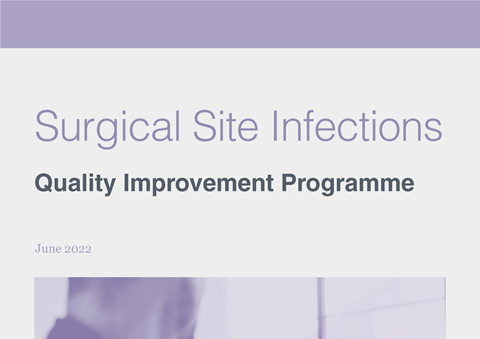Did you know that 60% of Surgical Site Infections are preventable?
- One in 20 patients undergoing a surgical procedure suffer with a surgical site infection
- That's 5% of surgical patients
- That's equivalent to one child in every classroom, 260 people at every Royal Albert Hall concert, and 500 people at every Man Utd football game
- 60% of surgical site infections are preventable
Time to tackle Surgical Site Infections
Surgical site infections (SSI) present a considerable challenge for healthcare systems across the world, including in the UK, and have a substantial impact on patients and healthcare professionals. Despite clear evidence and guidelines on how to reduce the risk of these infections on a global, regional and national basis – and the fact that research shows up to 60% of SSIs are preventable
With the NHS doing all it can to reduce the risks to the public from Covid-19, the vital role of infection prevention in improving health outcomes has never been higher in the public consciousness or on the political agenda. As elective care resumes across the country, now is an opportune moment to reflect on how we can work together to minimise the risks from other forms of healthcare associated infections, such as surgical site infections (SSIs).
Patients who contract SSIs face a host of issues, with potentially life-changing effects:
- the pain and discomfort of a serious infection
- longer hospital stays with the possibility
of weeks or even months off work - side effects of extended courses of antibiotics – with the risk of resistance
ever present - potential loss of an infected limb
- greater likelihood of re-admission to hospital for further surgery – often a repeat

At Molnlycke we promote best practice and give you the tools you need to implement change.

Our dedicated team of Surgical Site Infection specialists are ready to partner with you to tackle SSIs in your hospital.
'References'








